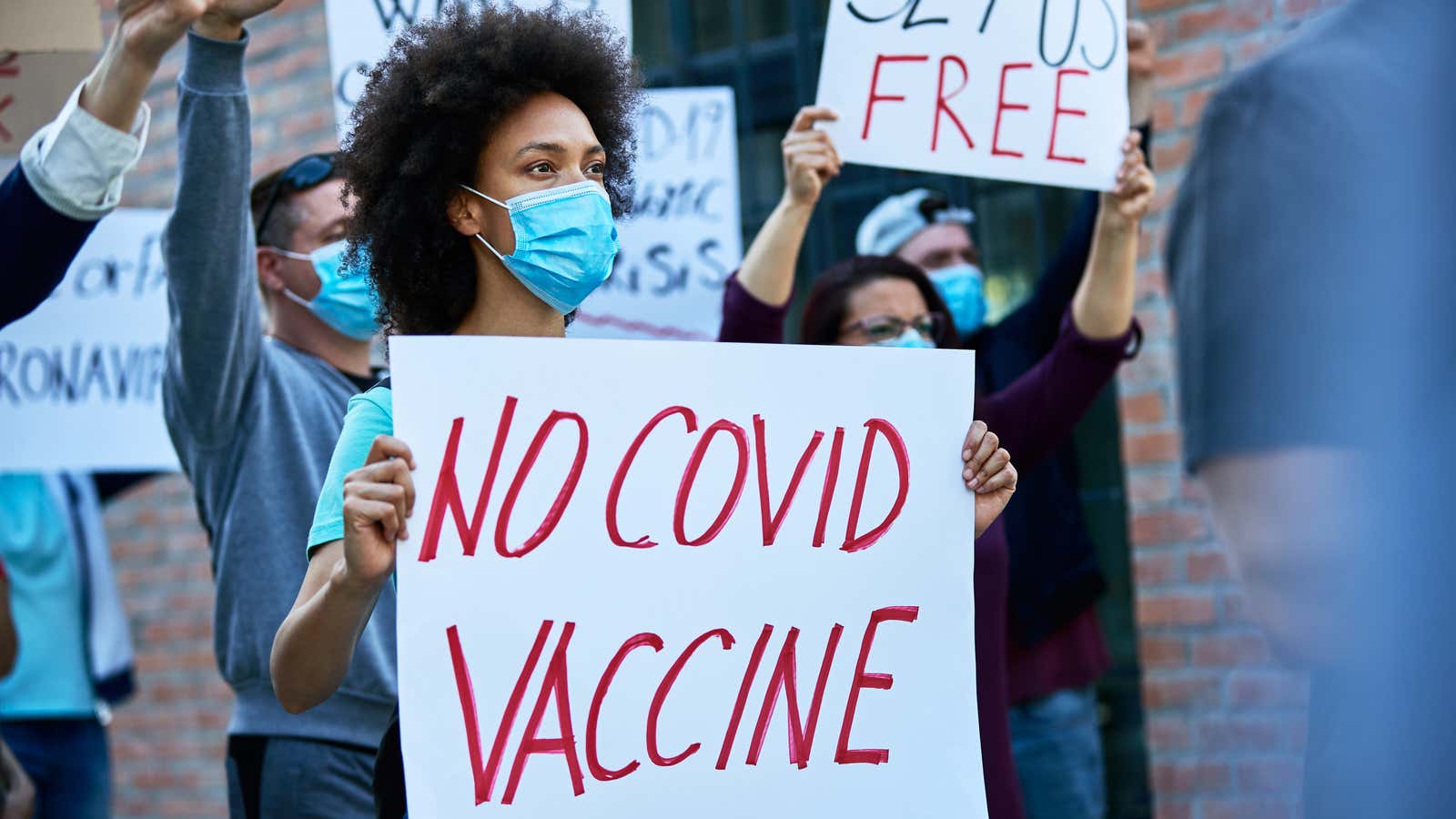How to Talk to Someone Who Doesn’t Want the COVID-19 Vaccine

As COVID-19 vaccines move from hypothetical to actual, with Pfizer seeking emergency use with the Food and Drug Administration, which could have been seen by the first Americans being vaccinated against the disease back in December , the discussion around actually taking vaccines is growing more personal. … In addition to the usual suspects – notorious anti-Vax and COVID-19 deniers – there are relatives and friends who are tired, if not afraid, of the entire pandemic. They may not want to go through the hassle of planning a series of shots for their entire family, assuming “everyone else” will do it, and that will be enough. Or maybe they don’t trust the record speed of vaccine development and testing. Still, as the Centers for Disease Control and Prevention has pointed out, vaccinations are essential to end the pandemic and get our lives back to something close to normal. So how are we supposed to talk to our loved ones who may not be taking the vaccine at all? Here’s some information and tools to help you start a conversation.
Recognize their reasons for indecision
Before offering this person a stream of links, consider what they think of getting vaccinated against COVID.
Some may be acting on the basis of misunderstandings, rumors, or false information – or they may simply not know what vaccination actually entails and how important it is. Some may think that the vaccine being administered is a prototype and has not been properly tested. But while the process was accelerated, not a single step was skipped, according to Ruth Carron, M.D. , a vaccine expert who has worked with the CDC and the FDA, in an interview published by the Johns Hopkins Bloomberg School of Public Health. Vaccines have been tested for several months and current data show that some of them are very effective . Any vaccine approved for use in the general public is first approved by the FDA and appropriately tested for general use .
Let this indecisive friend or family member know that the vaccine they will receive will not be part of the first wave of trials and that extensive human trials will be completed by the time they receive the vaccine themselves. But be clear about what the side effects might be: CNBC spoke to trial participants who reported side effects such as severe headaches and prolonged exhaustion. Admit that they may experience minor side effects, of course, but that is better than the severity of the actual COVID-19 infection.
Look at the history of vaccination in marginalized communities
Many Black, Indigenous and Colored People (BIPOCs) have been victims of experimental vaccines and targets of atrocities in the United States. For example, since the 1930s, black men have been the focus of research on Tuskegee’s syphilis , which has been conducted without formal treatment. agreement. For 40 years, participants were denied information about their diagnosis, underwent medical tests without proper information, and were denied proper treatment and access to penicillin as soon as it became available.
The history of people of color and medical malpractice has fueled distrust of the medical infrastructure in the United States, often leading to fear or skepticism about health workers and vaccines. A poll by The Undefeated and the Kaiser Family Foundation found that 27% of black Americans said they “definitely wouldn’t” take the vaccine, and 22% said they “probably won’t.” Recognize this part of the story and express your confidence in the accomplishments since then.
Discuss what it will take for our country and our economy to recover from the pandemic: herd immunity is needed to get people back to work, children back to school, and life closer to normal. May recommend to them the information available, which you could see together, for example, a special documentary ” Explanation coronavirus” , which explains the fact that at least 75% of the population should be vaccinated to stop the spread and begin to eradicate the virus.
Give personal accounts
There are currently over 12 million COVID-19 cases reported in the United States, but personal experience often outweighs large, unaffordable numbers. A 2015 study led by the Proceedings of the National Academy of Science (PNAS) worked with a group of anti-vaccination advocates and found that people had a change of mind after seeing real-life reports of children with measles. Share personal stories you’ve heard or experienced. Explain in detail your interactions with the virus or link to a real account that might resonate with them on a personal level.
Remind them of the vaccinations they have already received.
Most people today did not experience a pandemic before this pandemic, and the previous one was over 100 years ago . The reason we still don’t see a massive spread of mumps, rubella or polio is because a sufficient number of the population has been properly vaccinated. (For example, as the World Health Organization explains: “Population immunity against measles requires vaccination for about 95% of the population. The remaining 5% will be protected by the fact that measles will not spread among those vaccinated.”
People may not realize that the only way to eradicate COVID-19, like previous pandemics, is by vaccinating against the virus. It can be a difficult conversation, but recognizing their resistance, sharing your trust, and highlighting the role of vaccines in past pandemics can help give them the tools to make a more informed and informed decision about getting vaccinated against COVID-19.